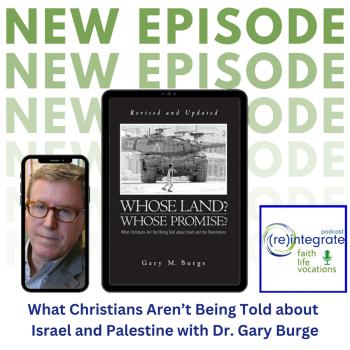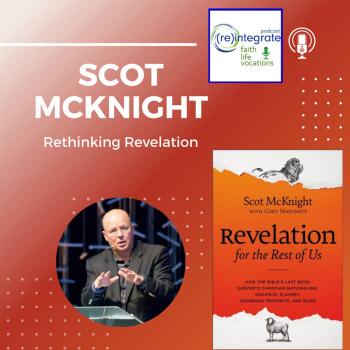Third in a Series on the Kingdom of God.
 We’ve been discussing the 8 very different ways to view the kingdom of God.
We’ve been discussing the 8 very different ways to view the kingdom of God.
George Eldon Ladd’s “Already/Not Yet” construct helped in some ways but was not adequate to deal with all the other tensions that arise in the study of the kingdom.
Another major tension that must be addressed is whether or not the kingdom is particular for those under the reign of God (that is, Christians) or if it is universal for the entirety of the cosmos (especially for the transformation of culture).
Are the Church and the Kingdom Distinct Things?
Dispensationalists (believing that the kingdom is in the future when Christ will rule Israel for a millennium) see church and kingdom as very different things. Those in the Reformed camp have tended to also see the church and the kingdom as different things.
Ladd’s influence cannot be underestimated on this. Because of Ladd, many have affirmed the idea that kingdom and church are two separate things. He wrote,
“While there is an inseparable relationship between the Kingdom and the church, they are not to be identified. The Kingdom takes its point of departure from God, the church from human beings. The Kingdom is God’s reign and the realm in which the blessings of his reign are experienced; the church is the fellowship of those who have experienced God’s reign and entered into the enjoyment of its blessings. The Kingdom creates the church, works through the church, and is proclaimed in the world by the church. There can be no Kingdom without a church—those who have acknowledged God’s rule—and there can be no church without God’s Kingdom, but they remain two distinguishable concepts: the rule of God and the fellowship of men and women.” – George Eldon Ladd, A Theology of the New Testament, (Grand Rapids, Mich: Wm. B. Eerdmans Publishing Co., 1993), 117
Ladd’s influence has been so powerful that theologian Millard J. Erickson, in his Christian Theology (p. 80), writes that the tensions in eschatological and ecclesiological debates have shifted, “in fact, the phrase ‘already, but not yet’ has become a sort of slogan.” This influence has led Russell Moore to state “After a half-century of searching the Scriptures a quiet consensus is emerging about the Kingdom of God” (The Kingdom of Christ: The New Evangelical Perspective, p. 11)
But Moore’s study focuses almost exclusively on the dispensational and covenantal wings of evangelicalism, where the “already/not yet” has taken root and where most have accepted that the church and the kingdom are different things.
Anabaptists: Kingdom is the Church as a Countersystem to the World
However, Anabaptists do not agree with Ladd’s separation of the church and the kingdom. They hold to Snyder’s category of “The kingdom as countersystem: the subversive kingdom”—“countersystem” meaning that the local church is to live subversively as the kingdom of God, countering the kingdoms of the world.
As John Howard Yoder wrote,
“The alternative community discharges a modeling mission. The church is called to be now what the world is called to be ultimately.” (The Priestly Kingdom, p. 92)
Scot McKnight, in Kingdom Conspiracy: Returning to the Radical Mission of the Local Church, lays out the case for the Anabaptist view of the kingdom.
We will look closely at Scot McKnight’s view of the kingdom of God in the next post. Scot was one of my New Testament professors at Trinity Evangelical Divinity School back in mid-1990s. We started a friendship 12 years ago when he started the Jesus Creed blog and I had the Vanguard Church blog. He has always been a great help and theological sounding board for me. It will be interesting to interact with his view of the kingdom of God!
Image by Jordon Cooper. Used with permission. Sourced via Flickr.













